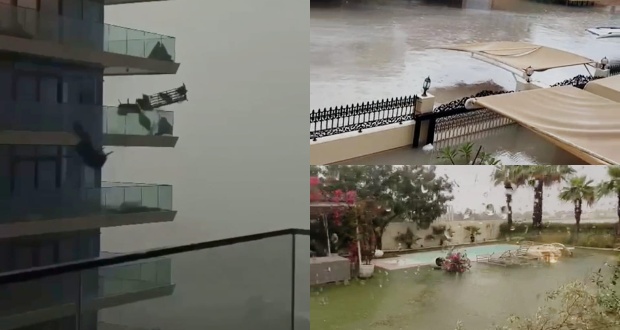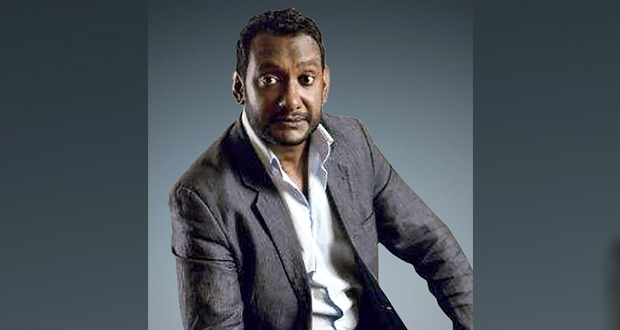Publicité
A secure business environment for economic development
Par
Partager cet article
A secure business environment for economic development

The World Customs Organization’s (WCO) annual theme will be launched on International Customs Day. It is celebrated annually by the global Customs community, on 26 January, in honor of the inaugural session of the Customs Co-operation Council (CCC), which took place on 26 January 1953.
2018 has been dedicated to be the year for building a secure business environment for economic growth. The Secretary General of the WCO, General Kunio Mikuriya, in his message, has laid emphasis on three different aspects of securing the business environment:
Enabling environment
It is globally recognized that customs can contribute to making the business environment more stable and predictable. For example, by streamlining procedures, tackling corruption, enhancing integrity and facilitating the movement of goods, conveyances and people in general.
Safe environment
Legitimate businesses require a secure supply chain to prosper. But some threats come from within the trade itself, such as the shipment of illicit goods that could endanger peoples’ health, safety and security. Combating cross-border crime, including the illicit funding of international terrorism through trade activities, is our responsibility.
Fair and sustainable environment
The importation of illegal goods, such as goods that infringe intellectual property rights (IPR), or legal goods which, for example, are smuggled into a country to avoid the payment of duty or whose value has been misreported, can do immense harm to a country’s economy. It is not only a question of financial losses for both legitimate traders and governments. Such activities can also affect governance, the economy, development and human security across the globe.
These three aspects are invariable and connected to the current Customs. Focus on trade facilitation implementing international vonventions that support the goals contained in the United Nations transforming our world.
Many WCO tools, instruments and initiatives that have been developed can readily assist customs administrations in building a secure business environment. The celebration aims at rethinking national customs services to sustain international goals for a competitive edge and position ourselves in the driving seat.
Today, the role of customs throughout the world is not limited to revenue collection. Internationally, customs are given the role of protector of the nation’s territory.
It involves:-
- promoting socio-economic development
- Creating the conditions of economic growth
- Enforce trade protocols
- Controlling borders
- Providing security and environment protection
- Protecting citizens
For its 68th year of existence, the World Customs Organization has left no stone unturned to propel the customs services in the future, where borders divide and customs connect. As borders are synonymous to division, the main challenge for Customs administrations is to identify and pursue the best method to increase connectivity.
Customs have succeeded to create a common language although each country has its specificities. Thus to facilitate trade. But worldwide, they have the challenges as the twin role of trade facilitation and guardian of the community. Trade facilitation looks at how procedures and controls governing the movement of goods across national borders can be improved to reduce associated costs burdens and maximize efficiency, while safeguarding legitimate regulatory objectives.
To function efficiently, customs administration can no longer remain isolated entities away from the societal context. There need to be bridges with business partners. Customs must realize that the traditional customs control methodology can no longer cope adequately with the challenges arising from the new globalize business environment.
In the last twenty years, the Mauritian customs has gone through several reforms to position itself as a world class customs. In order to maintain a high degree of compliance whilst facilitating the rapid movement of goods and passengers, customs procedures and systems have been simplified, harmonized and improved so that the right balance can be achieved.
From the fully manual declaration to the Asycuda and the EDI 24/7 declaration and to the electronic payment, we have reached the pure green declaration.That is paperless. From a Customs Authority, today we have a customs service with many instruments, tools and best practices with strategic visions to support the smooth and lawful flow of legitimate goods, services and people across borders.
In Mauritius, in spite of all its efforts and commitments, the customs suffer major constraints:- All the other government agencies which are supposed to assist customs in specialized or controlled trading items could not cope with customs in the philosophy of facilitating trade. In fact, all these agencies have an archaic and useless bureaucratic process that takes several days to reach customs which take the blame at the final point.
It is these agencies that give Mauritius a poor LPI. Unlike all African and European countries where agencies fall under the Customs Administration. It is the customs to manage and implement Government policies as regards to health, agriculture, safety, etc.
But in Mauritius, customs depend on 22 independent agencies for delivery of their services. These agencies have different standards with bureaucratic hurdles, poor services, duplicating process, arrogance and incompetency. Many useless procedures and requirements that date back to the 70s are still in practice.
A recent report from the BOI has shown that for a ship to harbor, Port Louis needs to satisfy 57 different administrative processes. Traders also noted the multiple agencies operating in silos are causing delays in business culminating huge impact on consumers. Import Permit can take days, weeks and even goes to several months, causing disruption in the logistics flow with high costs.
To make this worst, regulations are being made now and then which create opportunities of corruption, while new agencies are being created causing barriers to trade. While the customs and its strategic partners are working towards a secure business and a friendly environment, others are working behind closed doors with regulations that are detrimental to the national economy while impacting negatively on our Logistics Performance Index.
The last one applicable in October 2017, in contravention to international obligation of our country, results in the elimination of Small and medium-sized enterprises in the business of electronic and electric home appliances and favors a selected few at the expense of many. Thus eliminating competitors, with huge dwell time and additional costs. In fact, these agencies are like a curse to the customs and the business community.
The Mauritius Customs, under a young and dynamic leadership, takes all the challenges for a World Class Customs that many other Customs Administrations worldwide envy. Several thousands of import, export and passengers are cleared daily to ensure the happiness of the citizens. At the same time, acting as a barrier to drug traffickers and fighting illegitimate trade for the protection of the country while exposing to temptation, intimidation and threats.
But most important, we should not forget the people behind this. An organization is only as good as its staff. And for the Customs Day, may we take the liberty to pay tribute to all those men and women who have dedicated themselves to the customs Institution and succeeded where others had predicted failure.
For the International Customs Day, let us pay tribute to all these courageous men and women who spare no effort so that thousands of tons of goods are cleared every day for home consumption whilst our exports are made to reach destination, thus promoting economic development.
The Mauritius Customs has been very dynamic and facing challenges these years. It is very difficult to predict what the future of customs is going to be. One thing is certain, the future will be a challenging one, with changes as the greatest constant.
A very happy International Customs Day to Customs people.
Afzal Delbar, President Customs House Brokers’ Association (CHBA) and Chairman Federation of Clearing & Forwarding Associations of Southern Africa (FCFASA).






